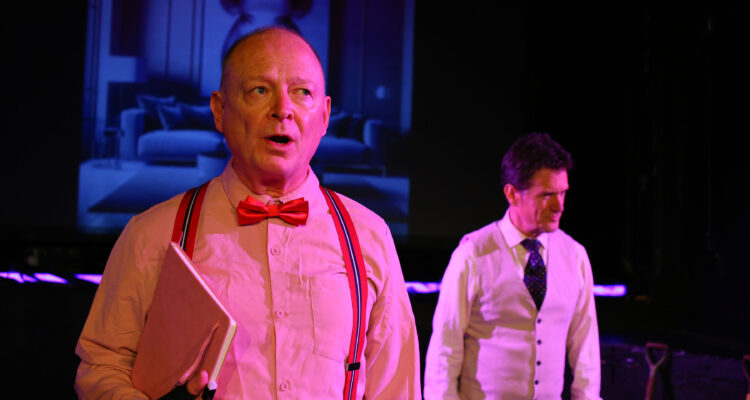George Orwell’s Animal Farm is a timeless allegory, its themes transcending the specific context of Soviet-era politics. In Animal Farm: The Sequel, this classic tale is reimagined, bringing Orwell’s vision into a new era defined by “neoanimalism”—a system that echoes the complexities and contradictions of modern capitalism. The sequel expands on the original narrative, exploring how power, inequality, and exploitation evolve in a world where the struggle for freedom takes on a new, yet familiar, form.
The animals have moved past communism and now exist in a capitalist system that reflects American society. With elections looming, the play draws bold parallels to current political dynamics, including lines that echo sentiments from recent history, such as “if we lose, we say it was rigged”—a reference to claims made during the 2020 U.S. presidential election. Yet, in this simplified version of American democracy, a stark message emerges: the people, or animals, ultimately lack real power. Though they appear to have a choice, their vote is an illusion, as those in power—the pigs—remain firmly in control.
A new product called Panzooka has swept across the farm—a highly addictive blue substance that, while captivating many animals, devastates the soil’s fertility. As its alluring effects ensnare some, others begin to see the toll it takes on their land and future. Discontent grows, and soon a revolution begins to take shape, fuelled by demands for sustainability and equity.
With a minimalist set, a narrator guiding the story, and touches of interpretive dance, this production has both strengths and limitations. Despite its modest production value, the play delivers a thought-provoking and relevant message. Political enthusiasts will appreciate the challenging questions it raises and the clever use of metaphor throughout. The pigs’ sincere tone when addressing voters—while satirical within the play—highlights the hollow promises and fleeting rhetoric often heard in real-world politics.
A compelling aspect of the play is its treatment of minority “othering,” represented by the scapegoating of the rats. Blame for the farm’s troubles is shifted onto them, allowing the true culprit—Panzooka—to go unchecked. This serves as a sharp commentary on the tactics populist politicians often exploit, redirecting public frustration toward marginalized groups while concealing deeper issues. Though Panzooka’s symbolism isn’t overt, it seems to embody the all-consuming nature of consumerism—a reflection of the insatiable greed that can arise in a highly capitalist society.
The standout performance came from Grace Statton as Caesar, who brought a dynamic flair and intensity to the role of the villain. The casting and costuming for the pigs were also particularly well-executed, reinforcing the characters’ roles with creativity and precision.
The ending felt somewhat confusing and a bit underwhelming. While it’s understandable that a story like this has no straightforward resolution, some of the animals’ final decisions seemed out of character and difficult to justify, leaving the conclusion feeling inconsistent with the rest of the narrative.
The play also pays homage to Orwell’s 1984, referencing themes of perpetual war and fearmongering as tools for controlling the population. The political rhetoric explored was both insightful and disheartening, capturing a sense of apathy and manipulation in modern politics. Lines like “Once the election is over, no one will care” and “some care but do nothing about it” resonate as a stark and perhaps painfully accurate commentary on public disengagement and complacency.
Writer & Director: Ana Isabel Gonzalez
Cast includes: Kimberely Ellis, Will Byrne, Grace Statton, David Hall, Guy Roberts, Esther tan
Venue: New Wimbledon Theatre, Studio
Until Saturday 9th November

